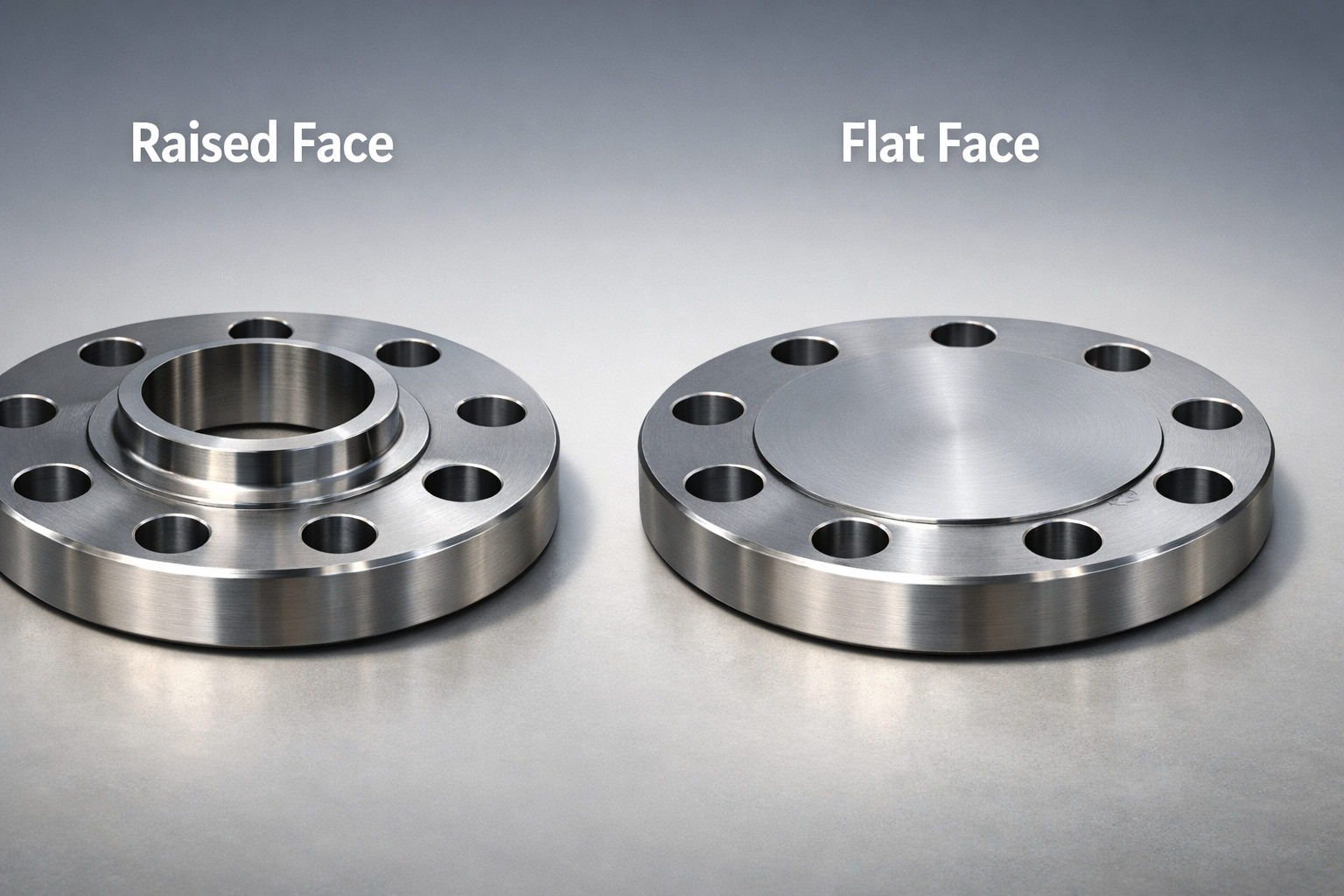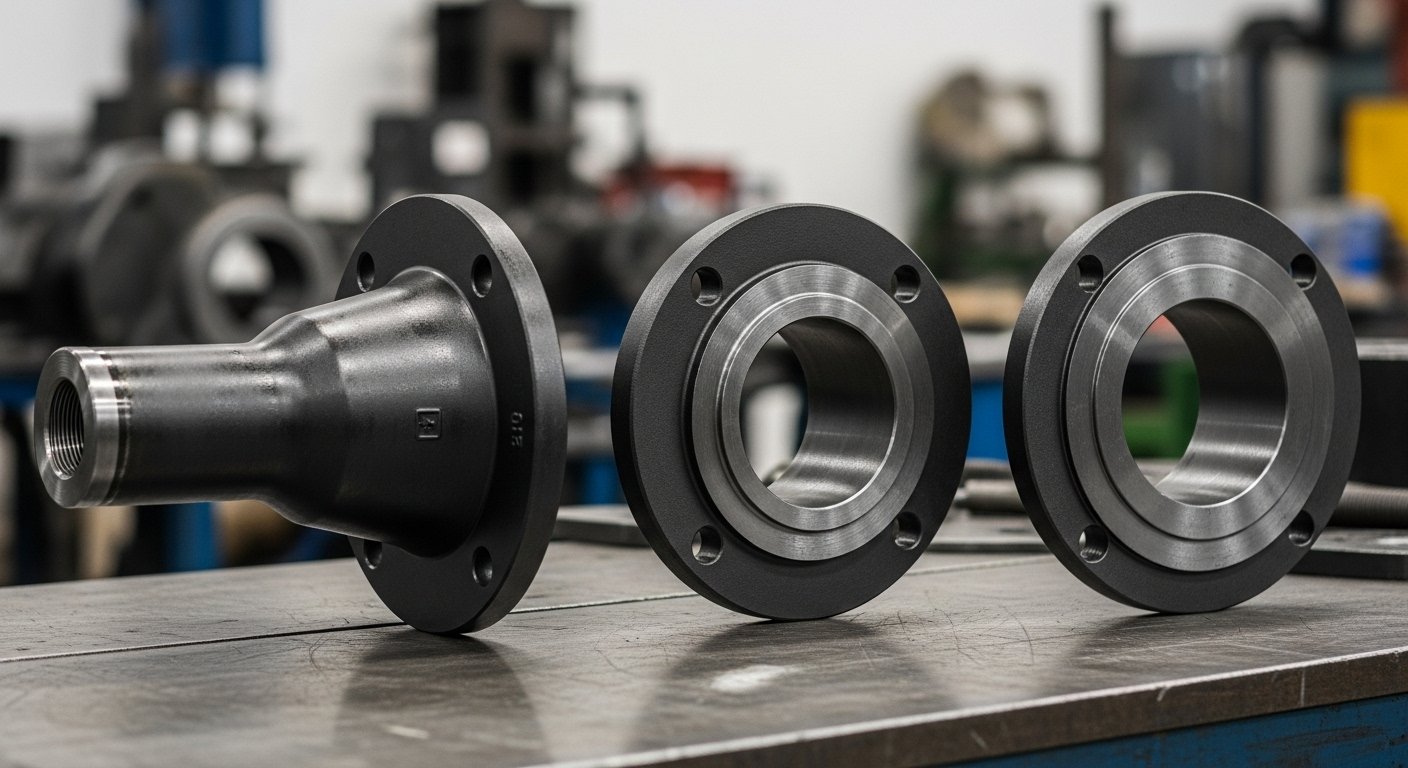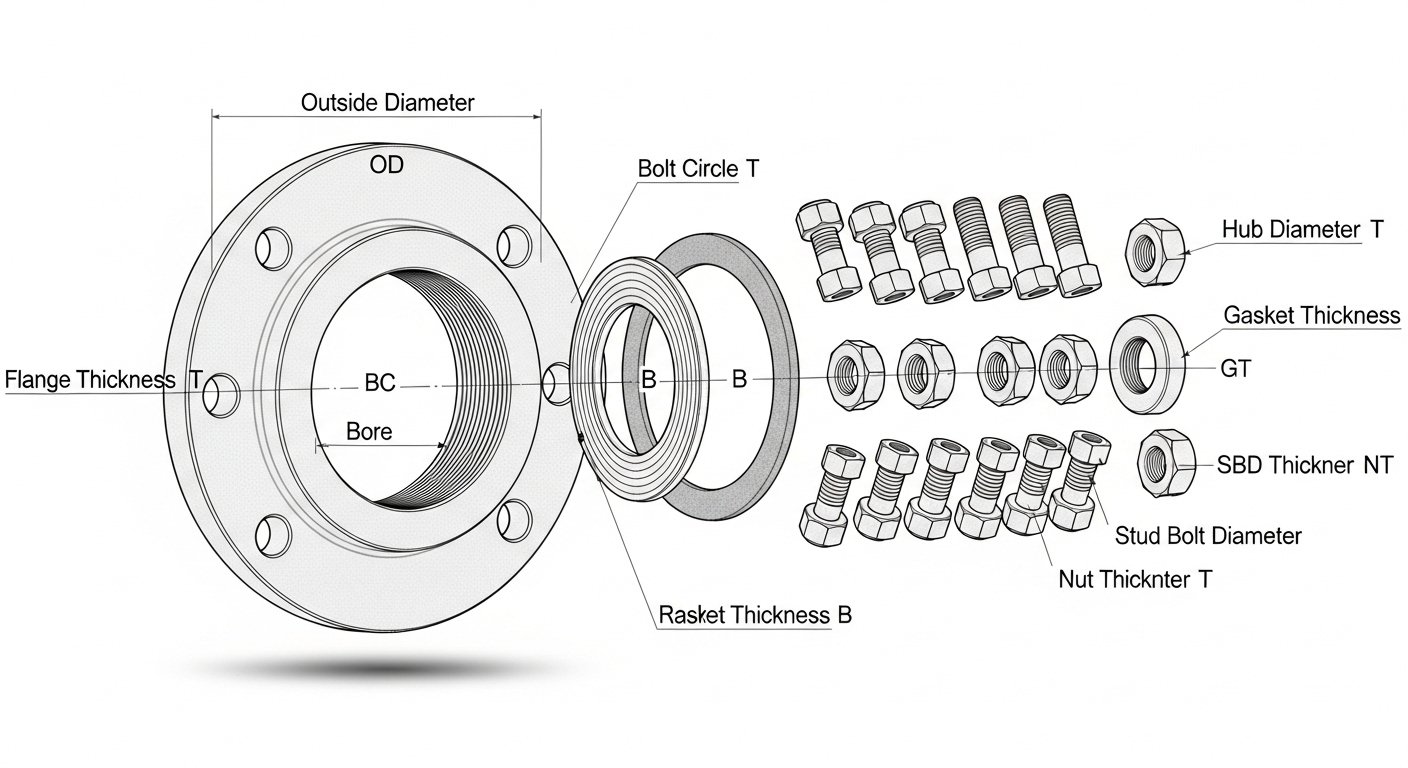Exploring ANSI Flanges: Types, Uses, and Benefits
Exploring ANSI Flanges: Types, Uses, and Benefits
In any fluid or steam piping system, the connection's joint becomes a potential leak source. The design of the flange—the component that connects pipes, valves, pumps, and other equipment—is critical to ensuring a secure and reliable connection for efficient and safe fluid flow. Understanding the different types of ANSI flanges, their specifications, and their benefits is essential for selecting the right components for your piping system.
What are ANSI Flanges?
ANSI flanges are components manufactured according to standards set by the American National Standards Institute (ANSI). These flanges are designed to provide secure connections in piping systems, ensuring compatibility and reliability across different manufacturers and applications.
ANSI flanges are available in various sizes, styles, and pressure classes, and can be made from different materials such as forged steel, stainless steel, and cast iron. They also come in different face types, including raised face, flat face, and ring joint face, each suited for specific applications and sealing requirements.
ANSI B16.5
ANSI B16.5 is a fundamental standard for pipe flanges and flanged fittings. This standard covers flanges from NPS 1/2 (DN 15) to NPS 24 (DN 600), making it one of the most widely adopted standards in the industry.
The standard was developed under the auspices of the sectional Committee B16 of the American Standards Association (ASA), now known as ANSI. It ensures that flanges manufactured by different companies adhere to universally recognized standards, providing consistency, reliability, and compatibility across the industry.
ANSI CLASS FLANGE TYPES
Slip-On Flange
Characteristics:
- Easy to install
- Inexpensive
- Less strong than weld neck flanges
- Not suitable for high-pressure applications
Best for: Low to medium pressure applications where cost is a consideration.
Weld Neck Flange
Characteristics:
- Strongest type of flange
- Ideal for high-pressure applications
- Excellent for systems with vibration and shock
- More expensive to install
Best for: Critical applications requiring maximum strength and reliability.
Lap Joint Flange
Characteristics:
- Used for maintenance and inspection purposes
- Made of non-weldable material
- Less strong than weld neck flanges
- Not suitable for high-pressure applications
Best for: Systems requiring frequent disassembly or where the pipe material is not weldable.
Threaded Flange
Characteristics:
- Easy to install
- Inexpensive
- Less strong than welded flanges
- Not suitable for high-pressure applications
Best for: Low-pressure applications where welding is not possible or desired.
Socket Weld Flange
Characteristics:
- A compromise between slip-on and weld neck flanges
- Stronger than slip-on flanges
- Easier to install than weld neck flanges
- Used in medium-pressure applications
Best for: Medium-pressure applications requiring better strength than slip-on flanges.
Blind Flange
Characteristics:
- Used to close off the end of a pipe or vessel
- Commonly used for maintenance and inspection
- Can be used to block off sections of a piping system
Best for: Closing off pipe ends, testing, and maintenance purposes.
ANSI Flange Specifications
Pressure Classes
ANSI flanges are classified by pressure classes, which indicate the strength rating of the flange at different temperatures. Common pressure classes include 150, 300, 400, 600, 900, 1500, and 2500.
Face Types
The face type determines how the flange seals with the gasket:
- Raised Face (RF): Most common, provides better gasket compression
- Flat Face (FF): Used with cast iron flanges and low-pressure applications
- Ring Type Joint (RTJ): Used in high-pressure, high-temperature applications
Materials
ANSI flanges can be manufactured from various materials, chosen based on the fluid type, temperature, and corrosion resistance requirements:
- Carbon Steel
- Stainless Steel (304, 316, etc.)
- Alloy Steel
- Cast Iron
- Special Alloys (Hastelloy, Inconel, etc.)
Benefits of Using ANSI Flanges
Standardization and Compatibility
ANSI flanges adhere to strict standards, ensuring compatibility between components from different manufacturers. This standardization simplifies procurement, reduces inventory costs, and ensures reliable connections.
Versatility in Sizes and Styles
With sizes ranging from 1/2 inch to 24 inches and various styles available, ANSI flanges can accommodate a wide range of applications, from small residential plumbing to large industrial systems.
Durability and Strength
ANSI flanges are designed to withstand high pressures and temperatures, making them suitable for demanding industrial applications. Their robust construction ensures long-lasting performance.
Stringent Quality Standards
Manufacturers of ANSI flanges must adhere to strict quality control measures, ensuring that each flange meets or exceeds the specified standards. This commitment to quality provides peace of mind and reduces the risk of system failures.
ANSI Flanges in Various Industries
Oil and Gas
ANSI flanges are essential in oil and gas operations, where they connect pipelines, valves, and equipment in refineries, petrochemical plants, and distribution systems. Their ability to handle high pressures and corrosive environments makes them ideal for these applications.
Power Generation
In power generation facilities, ANSI flanges connect steam lines, cooling water systems, and other critical piping. They must withstand extreme temperatures and pressures while maintaining reliable seals.
Chemical Processing
Chemical processing plants rely on ANSI flanges to connect equipment handling corrosive and hazardous chemicals. The right material selection is crucial to prevent corrosion and ensure system integrity.
Food and Beverage
In the food and beverage industry, ANSI flanges made from stainless steel are used to maintain hygiene standards and prevent contamination. They must be easy to clean and resistant to food-grade cleaning agents.
Pharmaceutical
Pharmaceutical manufacturing requires flanges that meet strict cleanliness and contamination control standards. ANSI flanges with appropriate materials and finishes are essential for maintaining product purity.
Water and Wastewater Treatment
ANSI flanges are used extensively in water and wastewater treatment facilities to connect pipes, pumps, and treatment equipment. They must resist corrosion from water and chemicals while maintaining reliable seals.
Considerations for Choosing ANSI Flanges
Pressure Requirements
Select a flange with a pressure class that meets or exceeds your system's maximum operating pressure at the highest operating temperature.
Material Compatibility
Choose a flange material that is compatible with the fluid being transported and resistant to corrosion in the operating environment.
Sealing Requirements
Select the appropriate face type based on your gasket requirements and the pressure and temperature conditions of your application.
Temperature and Corrosion Considerations
Consider the operating temperature range and the corrosive nature of the fluid or environment when selecting both the flange material and the gasket material.
Frequently Asked Questions (FAQs)
What does ANSI stand for, and why is it important?
ANSI stands for the American National Standards Institute. It's important because it establishes standards that ensure consistency, compatibility, and quality across the industry, allowing components from different manufacturers to work together reliably.
What is the difference between ANSI and ASME flanges?
ANSI and ASME are closely related organizations. ANSI B16.5 is the standard designation, while ASME B16.5 refers to the same standard published by the American Society of Mechanical Engineers. Both refer to the same specifications.
Can ANSI flanges be used for both high-pressure and low-pressure applications?
Yes, ANSI flanges are available in various pressure classes (150, 300, 600, 900, 1500, 2500) to accommodate both low-pressure and high-pressure applications. The appropriate pressure class should be selected based on the system requirements.
What are the advantages of raised-face ANSI flanges?
Raised-face flanges provide better gasket compression and sealing performance compared to flat-face flanges. They are the most common type and are suitable for most applications.
How do I choose the right ANSI flange for a corrosive environment?
For corrosive environments, select a flange material that is resistant to the specific corrosive agents present. Stainless steel, alloy steel, or special alloys may be required depending on the application.
What is the typical inspection and maintenance schedule for ANSI flanges?
Regular inspection should be performed based on the application's criticality and operating conditions. Visual inspections, leak checks, and bolt torque verification should be part of routine maintenance.
Can ANSI flanges be used in the pharmaceutical industry?
Yes, ANSI flanges made from appropriate materials (typically stainless steel) and with proper surface finishes are commonly used in pharmaceutical applications where cleanliness and contamination control are critical.
Are ANSI flanges suitable for high-temperature applications?
Yes, ANSI flanges are designed to handle high temperatures. The pressure-temperature rating tables in the ANSI B16.5 standard provide guidance on the maximum pressure at various temperatures for each pressure class.
Can ANSI flanges be used in potable water systems and the food and beverage industry?
Yes, ANSI flanges made from food-grade materials (typically stainless steel) and with appropriate surface finishes are suitable for potable water systems and food and beverage applications.
What is the typical lifespan of ANSI flanges with proper maintenance?
With proper material selection, installation, and maintenance, ANSI flanges can last for decades. The lifespan depends on the operating conditions, material selection, and maintenance practices.
Conclusion
ANSI flanges are essential components in piping systems, providing secure and reliable connections that ensure efficient and safe fluid flow. Understanding the different types, specifications, and benefits of ANSI flanges is crucial for selecting the right components for your application.
By adhering to ANSI B16.5 standards and considering factors such as pressure requirements, material compatibility, and sealing requirements, you can ensure that your piping system operates safely and efficiently. Whether you're working in oil and gas, power generation, chemical processing, or any other industry, ANSI flanges offer the standardization, versatility, and reliability you need.
For expert guidance on selecting the right ANSI flanges for your application, consult with reputable manufacturers and suppliers who can provide detailed specifications and technical support.


